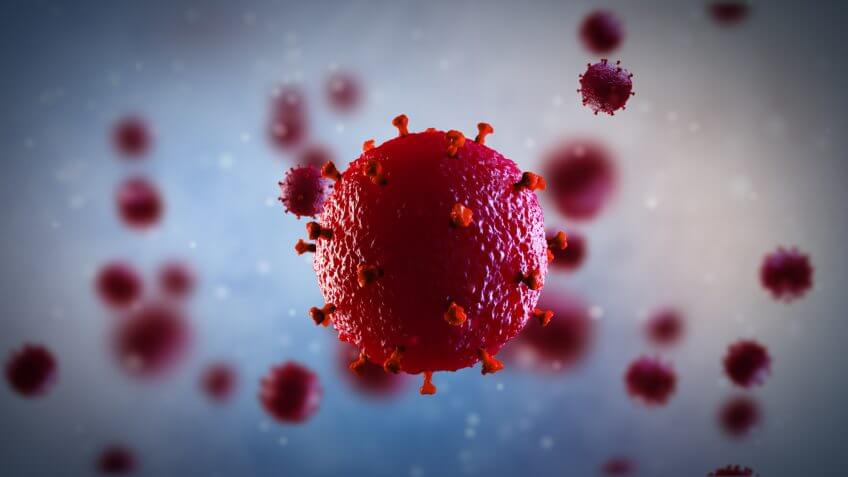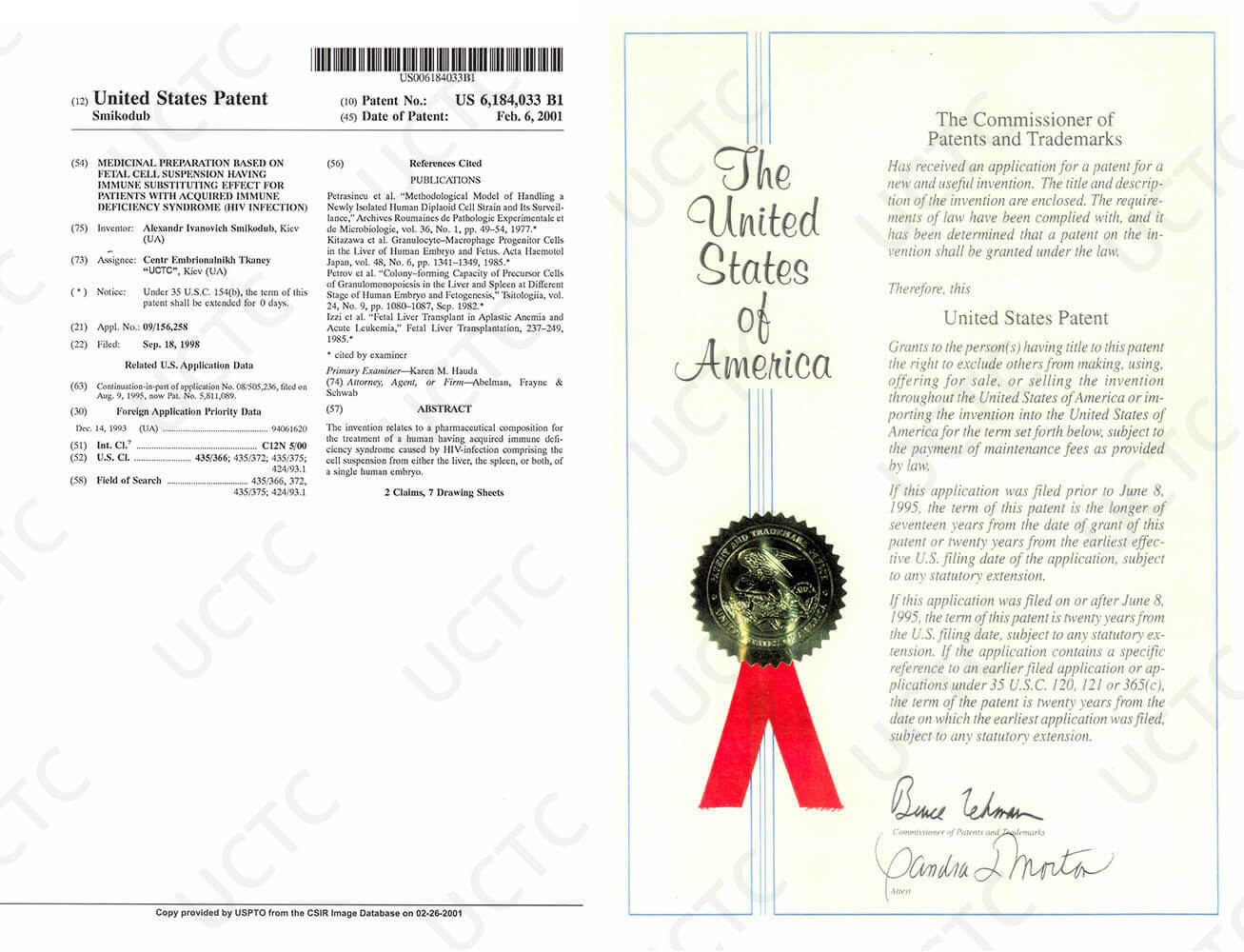AIDS/HIV treatment
Unique Cell Treatment Clinic pays great attention to the treatment of AIDS. For doctors of our clinic, the fight against this "twentieth-century plague" is a matter of honor. Professor Alexander Smikodub began the first research and trials in this area in 1992, and already in 1998 he received a priority for the invention of a method of combating this disease using suspensions with fetal stem cells:
Acquired immune deficiency syndrome is a serious infectious disease caused by the human immunodeficiency virus (HIV), and today it remains a serious medical and social problem worldwide. The virus attacks the immune system, which leads to the "suppression" of its functioning and decrease in the body's ability to withstand infections and neoplastic formations.
AIDS is already the final end-stage of HIV transmission when clinical manifestations of the disease appear. As it is known, the main ways of infection are sexual intercourse, blood transfusion and from mother to child (during pregnancy, delivery or breastfeeding). Since most HIV-infected people have no symptoms, and the latent period can last up to ten years, it contributes to the widespread occurrence of the virus through sexual contacts.
The first clinical signs caused by a decrease in the body's protective properties against infection (preAIDS) can be swollen lymph nodes, unexplained fever associated with a sharp decline in physical activity, sweating, especially at night, weight loss. In fact, AIDS as a manifestation of the immune system deficiency can be determined either by the development of severe infections or by the development of tumors. About 50% of patients die from pneumonia caused by atypical pathogens that are resistant to existing treatments. Most patients also have central nervous system damages (meningitis, encephalitis, brain tumors, dementia), skin and mucous membrane lesions in the form of Kaposi's sarcoma, of fungal (candidiasis) or viral (from the herpes virus family) origin.

Treatment for AIDS usually includes a combination of antiviral drugs (highly active antiretroviral therapy, HAART) and immunostimulating agents, as well as treatment of opportunistic infections and Kaposi's sarcoma. Despite the tremendous efforts of doctors and scientists all over the world, patients with an expanded clinical picture of AIDS rarely live more than two years. The antiretroviral drugs that are currently used do not completely kill the virus, but only prevent the spread and reproduction of HIV in the cells of the human immune system, at that having a lot of side effects. Timely initiation of antiretroviral treatment when indicated (decreased immunity and/or high viral load), reduces the risk of AIDS development by a hundred times. At the end of their intake, the disease continues to develop. Considering the fact that many patients interrupt treatment for any reason, as well as constant variability of HIV leading to drug resistance, there is a need for alternative methods of therapy.
Unlike treatment methods based on inhibition of virus development, the UCTClinic's specialists have developed and successfully use treatment schemes of HIV infection and acquired immunodeficiency syndrome based on the use of fetal stem cells, which are aimed at increasing the body's immune barrier to normal values. In this case, the disease simply does not occur. Fetal stem cells have strong immunocorrective properties that allow their effective use at any stage of the disease and in all forms of clinical manifestations of AIDS.
Treatment method invented by Prof. Smikodub allows to restore and maintain immunity parameters when having HIV infection, thereby preventing the development of disease progression, especially in case of absence of the direct evidence of antiretroviral therapy.
Stem cell therapy significantly improves the clinical course of the disease and effectively prevents the development of secondary complications of an infectious and oncological nature. In a complex application with highly active antiretroviral therapy, annual planned repeated courses of stem cell treatment by the method of Prof. Smikodub facilitate its tolerability, enhance the patient's quality of life, increase life expectancy. Modern antiviral therapy effectively prevents the growth and spread of HIV, however, if there is already a serious suppression of the immune system, the patient's prognosis is significantly worsened.
Positive immunocorrective effects and clinical remission of the disease after stem cell treatment in UCTClinic lasts from 1 to 2 years. Our therapy as a stem cell treatment for HIV in terms of effectiveness and accessibility is a viable alternative for today, especially if it is impossible further to use the traditional methods due to their poor tolerability by the patient.

